Nothing Found
Sorry, no posts matched your criteria
Sorry, no posts matched your criteria
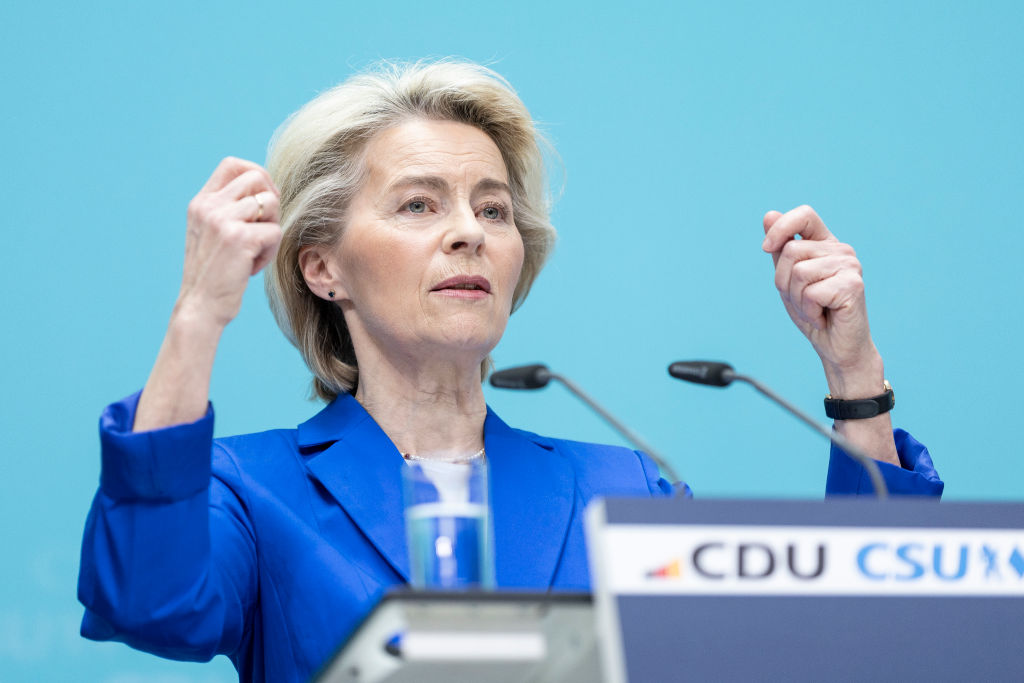
With the approach of June’s European Parliament elections, the grand coalition of the European People’s Party (EPP), the Progressive Alliance of Socialists and Democrats (S&D), and Renew Europe faces a watershed moment. The EPP’s recent decision to nominate European Commission President Ursula von der Leyen for a second term, far from being merely procedural, could have profound implications for Europe as it confronts internal and external challenges of unprecedented magnitude.
Together with its coalition partners, the EPP has steered the EU through multiple shocks over the past five years, including the Covid-19 pandemic, heightened tensions with China, Russia’s invasion of Ukraine, and the subsequent energy crisis. The EU’s achievements during this period have highlighted not only the resilience of the European community but also the crucial role of unity and the need to preserve the current coalition.
Moreover, these challenges have underscored the importance of upholding the intergenerational contract and foundational values that underpin the EU. This is particularly important in the face of mounting pressures from extremists and populists who advocate simplistic, short-term fixes instead of tackling long-term, complex challenges.
The EU’s agenda will likely remain dominated by persistent crises, necessitating a unified and thoughtful approach. The EPP-led coalition could play a crucial role, fostering stability and economic development while navigating the challenges Europe must face.
One of the main challenges will be the fight against climate change. Over the past few years, European leaders have worked together to protect the environment for future generations while striving to boost economic competitiveness. This collective effort has led to a significant reduction in transport-sector emissions and the adoption of the ambitious Fit for 55 plan, a comprehensive legislative package aimed at reducing the EU’s net greenhouse-gas emissions by at least 55% from 1990 levels by 2030. The plan includes binding targets for boosting renewable-energy production, reducing energy consumption, and lowering emissions in key industries.
Moreover, today’s geopolitical crises have brought security back to the top of Europe’s agenda, with EU member states aiming to de-risk energy value chains by focusing on renewables and efficiency measures. This strategic pivot reflects a broader commitment to sustainability that resonates beyond Europe’s borders, influencing energy policies around the world.
But this shift is not just about achieving climate goals. By focusing on renewable energies and de-risking supply chains, the EU also aims to shield European citizens and industries from the volatility of global energy markets, which are often influenced by geopolitical uncertainties. The bloc’s commitment to renewables is exemplified by Germany’s Energiewende (energy transformation) policy, as well as robust government investments in renewable energy in Denmark, the Netherlands, and Sweden. These strategic investments have also bolstered the competitiveness of these countries’ energy industries.
This is important because Europe is not alone in pursuing a sustainable future. Following the establishment of the EU’s emissions trading system, countries like Japan and Brazil have set up their own carbon markets. This global sustainability drive, while commendable, also means increased competition, again highlighting the need for unity as European countries seek to capitalise on the opportunities created by the green transition while striving to meet ambitious climate targets and tackle the complex challenges that come with implementation.
While unity is the EU’s greatest asset in the fight against climate change, the EPP’s leadership, in particular, must continue to play a central role in advancing the EU’s climate agenda. This is no time to backtrack. The expansion of the EU carbon market into new sectors like maritime transport, and the bloc’s prominent role in international climate negotiations, are prime examples of its proactive approach. Faced with the existential threat of climate change, EPP, S&D, and Renew leaders must draw on their experience, knowledge, and ambition to defend the bloc’s core values against rising populism and guide Europe through the challenging times ahead.
Far from being a distant threat, climate change is already wreaking havoc across Europe. At this critical juncture, Europe requires unity, vision, and bold leadership more than ever. The future of the bloc, the welfare of its citizens, and the success of its industries are in our hands. For responsible political parties, now is no time to make Europe a victim of partisan paralysis.
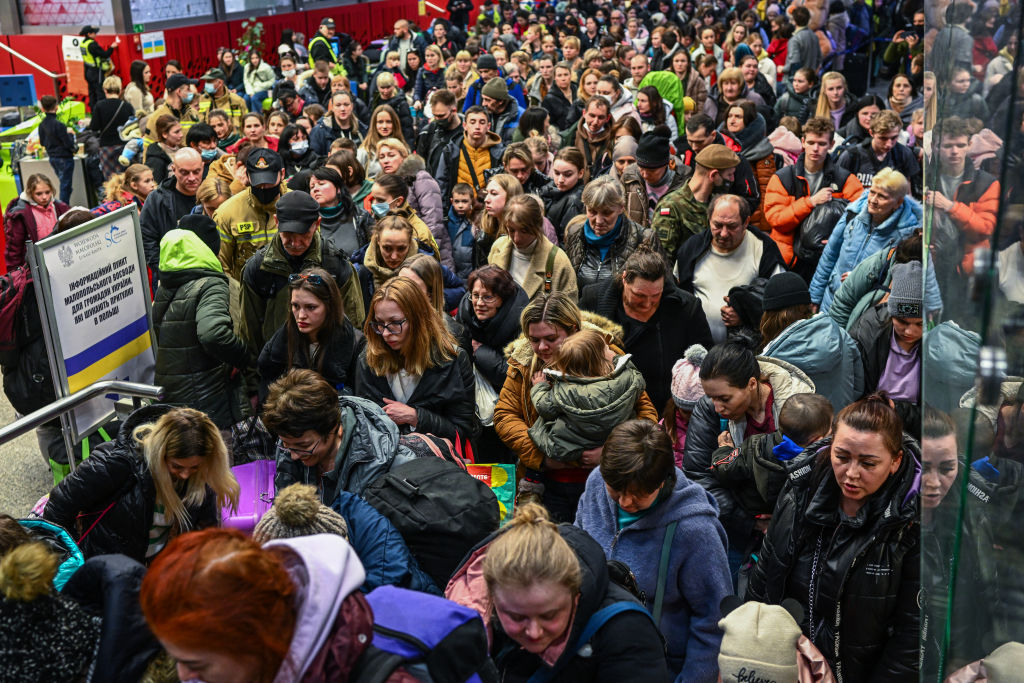
Western leaders are well aware of the dangers of a Russian victory in Ukraine. ‘When dictators and autocrats are allowed to run roughshod in Europe,’ US President Joe Biden recently observed, ‘the risk rises that the United States gets pulled in directly,’ with the consequences reverberating around the world. Specifically, he noted previously, if Russian President Vladimir Putin attacks a NATO ally, ‘we’ll have something that we don’t seek and that we don’t have today: American troops fighting Russian troops.’ Similarly, NATO Secretary-General Jens Stoltenberg recently warned that if Putin wins in Ukraine, there is real risk that his aggression will not end there.
Let us play Cassandra. The US has failed to deliver the $60 billion in aid it has promised to Ukraine, and the European Union has likewise proved unable to fulfill its €50 billion (US$54.8 billion) pledge. Because these failures are rooted solely in internal politics, no amount of charisma and persuasion on the part of Ukrainian President Volodymyr Zelensky, or pluck and perseverance on the part of the soldiers fighting under General Valery Zaluzhny, can make much difference.
Suppose that aid never materialises. Without sufficient weapons and munitions, Ukraine’s military would eventually have to capitulate to Russia. As commentator Simon Kuper recently pointed out, Russia has already carried out ‘mass executions, castrations, rapes, torture, and abductions of children’ in Ukraine, there is good reason to think that such a surrender would not end the violence there. Putin’s forces – comprising largely ex-convicts and untrained soldiers – may well inflict terrible ‘victor’s justice’ as they occupy all of Ukraine’s territory.
Russian occupation would not necessarily lead to total occupation and annexation, as was the case for Crimea, and later for partially occupied Donetsk, Luhansk, Zaporizhzhia, and Kherson. Putin might choose, instead, to install a puppet regime and claim to have achieved the ‘demilitarised,’ ‘denazified,’ and ‘neutral’ Ukraine he sought all along.
But would Putin’s revanchist agenda end there? We believe that Putin would then set his sights on NATO countries, beginning with Poland. Frequently targeted in Russian propaganda, Poland is not only a member of both NATO and the EU—and Polish voters recently rejected right-wing populism in favor of a strongly pro-Western government. This makes it a prime target for a Russian invasion.
Officially, it might not be Russian soldiers who descend on Poland. Putin has been known to preserve deniability by sending proxy armies and troops without insignia (such as the ‘little green men‘ who seized Crimea in 2014) and flying made-up flags in made-up ‘people’s republics.’ One should not be surprised if soldiers enter Poland wearing Ukrainian uniforms, carrying Ukrainian passports, and flying Ukrainian flags.
Putin may already be rehearsing such a scenario. There have been reports of Ukrainian prisoners of war being drafted to fight against the Armed Forces of Ukraine. In a dispatch by RIA-Novosti, one of the 70 POWs fighting in the ‘Khmelnitsky’ unit, Kirill Spassky, describes the POWs in combat and mentions that there were no Russian ‘barriers’ standing behind them with their guns ready to prevent them from deserting.
Kremlin propaganda would spin any apparent clash between Ukraine (by then a Russian puppet state like Belarus) and Poland as a result of, say, grain disputes, while highlighting old animosities going back to the 1943 Wołyń/Volhynia massacre. With the Kremlin already regularly perpetuating the lie that Poland dreams of taking back Western Ukraine, it would be no great leap for it to claim that Ukraine had little choice but to strike first in what was an inevitable conflict. (In Putin’s own words, he learned in the streets of his hometown of Leningrad that ‘when a fight is inevitable, you have to hit first.’)
This narrative might even convince some Ukrainians. After all, this scenario begins with the US breaking its promise to stand with Ukraine ‘for as long as it takes’, and the EU failing to provide anywhere near the one million rounds of artillery ammunition it pledged in March 2023. Ukrainians have shown courage, determination, and patriotism in the fight against Russia, but if Western aid dries up, they will feel utterly betrayed.
A faux-Ukrainian invasion of Poland certainly should trigger Article 5 of the NATO Charter, which states that an armed attack against one or more NATO members ‘shall be considered an attack against them all’. But there is reason to believe that NATO might choose not to act. Already, some commentators are laying the groundwork for such a betrayal. ‘Article 5 isn’t sacrosanct,’ Kuper writes.
It would not be the first time Poland was left high and dry by those who had promised to protect it. When Hitler attacked Poland in 1939 and divided it with the Soviet Union, Poland’s allies, Britain and France, did not intervene. Likewise, both the US and the United Kingdom have shirked their obligation under the 1994 Budapest Memorandum to guarantee Ukraine’s sovereignty.
So, are we headed toward World War III by proxy? Will Russia manage not only effectively to seize Ukraine, but also to invade Poland (and potentially other countries), without ever having to face NATO head-on? Putin is, after all, a master of deniability. Russians even have a saying for blunt disavowal of responsibility: ja nie ja (‘I am not me’).
Such an outcome is hardly far-fetched, nor is it inevitable. The US and the EU can avert this nightmare scenario by delivering the aid to Ukraine that they have promised. One hopes that recognising the possible consequences of abandoning Ukraine will provide the wake-up call they need.
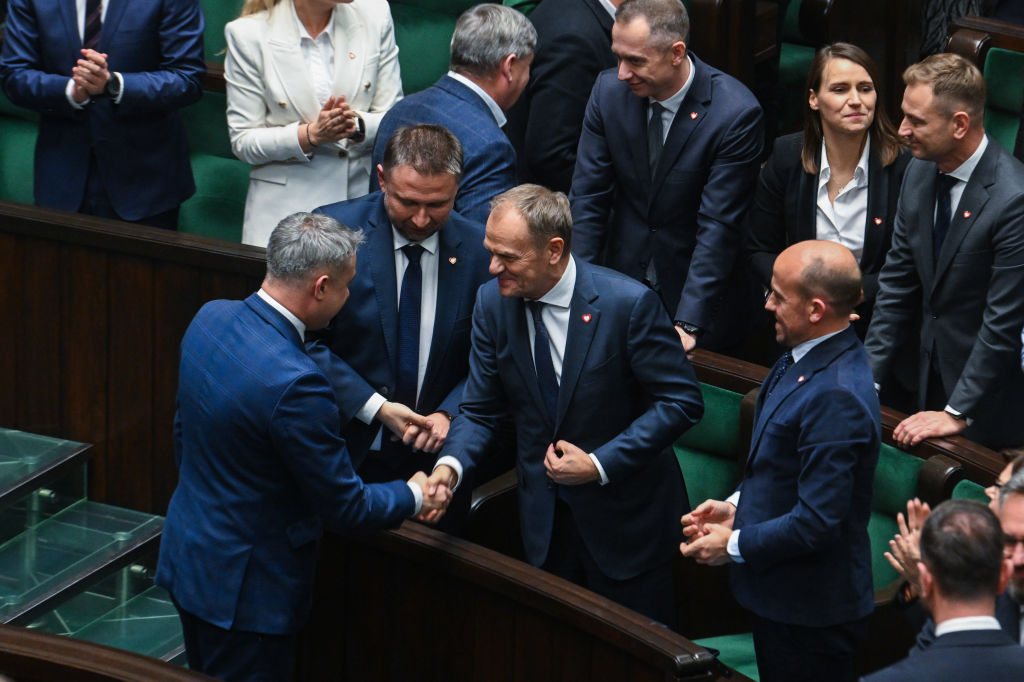
This week, Donald Tusk won a vote of confidence in Poland’s parliament to lead a new government as the country’s new prime minister, following a failed bid by the incumbent, Mateusz Morawiecki, to remain in that role.
The vote provoked a visibly nervous reaction from the leader of the outgoing populist government, Jaroslaw Kaczynski, who stormed up to the rostrum to denounce Tusk, a former prime minister who subsequently served as president of the European Council, as a ‘German agent’. Kaczynski’s behaviour since the October election has been all too revealing: the all-powerful national populist leader of the past eight years has lost control—of himself as well as of the country.
Kaczynski can thank his own hateful policies for his electoral defeat on 15 October (following a record voter turnout of 75%). Though his Law and Justice (PiS) party won more seats than any other single party, Tusk has built a broad four-party coalition with a solid parliamentary majority. He is now taking great pains to show his appreciation for his partners, including by creating 26 ministerial positions in the new government.
Tusk’s administration will need to show consistency and unity to deal with Poland’s many crises. After years of PiS illegally packing major judicial institutions with political cronies, a top domestic priority is to restore the rule of law. Tusk also promises a ‘return to Europe’, prompting celebrations across the European media, especially in Germany, a key neighbour with which Kaczynski had been picking absurd fights.
Paradoxically, the PiS government was generally an easy partner for Germany, since it isolated Poland within the European Union. While Tusk’s victory was greeted with joy in Berlin, German leaders surely know they will be dealing with a serious, seasoned player who will defend Poland’s interests more effectively than PiS ever did.
In his exposé (a speech outlining the new government’s plans), Tusk looked directly at PiS’s parliamentary deputies and made clear that no one in the EU will be able to push him around. In doing so, he took the air out of PiS’s aggressive propagandising about him being subordinate to Berlin, and he sent a clear signal to both the German and French governments. He has already announced that he will oppose proposed EU treaty changes designed to remove the unanimity requirement, warning against ‘naive, sometimes even unbearable Euro-enthusiasm’ behind efforts to ‘change the character of the EU’.
In terms of foreign policy, Tusk says he will focus primarily on maximising support for Ukraine from Poland and other EU and NATO states. He didn’t mince words: ‘I cannot listen to politicians who talk about being tired of the situation in Ukraine. They are tired, they say it to the face of President Volodymyr Zelensky. Poland’s task is to loudly and firmly demand that the West fully resolve and help Ukraine in this war.’ There was a clear message here for Hungary’s pro-Kremlin prime minister, Viktor Orban, whom Tusk knows well and once considered a friend.
Still, Tusk also declared that his government will show ‘cordial and benevolent assertiveness when it comes to Polish interests’ on the Polish–Ukrainian border, where Polish truckers have set up blockades to prevent their lower-paid Ukrainian counterparts from entering. Tusk says he will offer an immediate solution to this problem, which is destroying the Ukrainian economy.
On the fraught issue of immigration, Tusk showed during his stint as president of the European Council that he has a strong, principled position on the matter. His policy can be summed up as ‘borders first’. All borders must be secured before a properly functioning migration and asylum system can be established, though the authorities can ‘protect the Polish border and be humane at the same time’. His government intends to seal the border, but also to end the illegal practice of ‘push-backs’, which has cost the lives of more than 50 people on the Polish–Belarusian border in recent years.
The importance of this issue is underscored by the fact that Tusk already has plans to fly to Tallinn and meet with the prime ministers of Estonia, Latvia and Lithuania. They have many of the same priorities: dealing with the war in Ukraine, securing their borders (all are targets of a Russian and Belarusian hybrid war that includes funnelling immigrants over their borders) and strengthening their cooperation with like-minded governments.
In his exposé, Tusk made sure to mention Finland, signalling a stronger focus on NATO’s northern front. During Tusk’s first government, Radek Sikorski (who is returning as head of the foreign ministry to rebuild Poland’s ruined diplomacy) and Sweden’s then prime minister, Carl Bildt, forged a special relationship. Now, Tusk wants to do the same within NATO. It is a sensible strategy, since he can’t hope for cooperation within the Visegrad group, owing to populist spoilers like Orban and Slovakia’s new prime minister, Robert Fico.
Poland today is like a ship that needs to be rebuilt while at sea. The situation is not unlike 1989. The biggest difference is that the economy today is in crisis, rather than in ruins. Still, other challenges are just as difficult, if not more so. Back then, Russia (or, rather, the Soviet Union) was on its knees, whereas now it is waging wars of aggression. There is no Polish politician today who could handle these challenges better than Tusk.
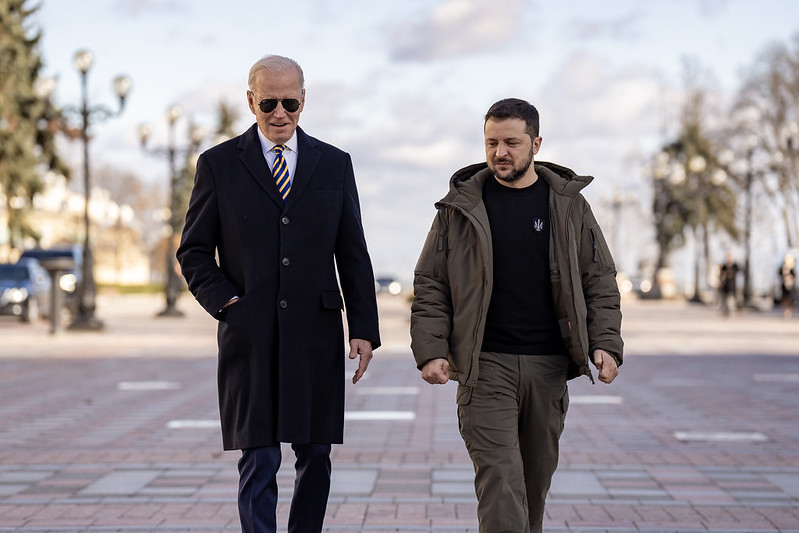
In recent weeks, US President Joe Biden has boldly referred to the United States as the world’s ‘indispensable nation’.
But when the term was first coined—by Secretary of State Madeleine Albright in the 1990s—the world was a markedly different place. The Cold War had just ended, with America victorious. It faced no peer competitors, or even the prospect of one on the horizon. The events of 9/11 were yet to occur.
In short, American leadership of the global order seemed not only assured, but also likely to endure for the foreseeable future.
Today, though, claims about both the necessity and the capacity of the US to provide global leadership are increasingly being put to the test. Wars in Ukraine and the Middle East—in addition to ongoing competition with China—are jostling for US attention and resources.
At a time when Republican Party infighting has brought the government itself close to paralysis, there’s a looming sense that the US will struggle to provide the type of blanket world leadership—and the assurance that comes with it—in the way it has done before.
It’s therefore not surprising that another round of commentary has emerged about the need for the US to pressure Ukraine to accept a peace deal.
This seems counterintuitive for a couple of reasons. For one thing, Ukrainian President Volodymyr Zelensky has no incentive to negotiate a peace deal—and nor does Russian President Vladimir Putin, for that matter.
In addition, the Biden administration has consistently reaffirmed its commitment to supply Ukraine with military, economic and humanitarian aid—even though Kyiv continues to chafe at Washington’s reticence to provide it with weapons that might prove more decisive on the battlefield.
However, Ukraine is seen as potentially low-hanging fruit for those seeking to unburden the US from the many demands on its time and money. This mainly consists of conservative Republicans in Congress and right-wing national-security think tanks.
There are several arguments put forth by this camp. Crucially, Ukraine’s anticipated counteroffensive against Russian forces has thus far failed to yield a decisive breakthrough. Zelensky himself grudgingly admitted this some months ago.
Moreover, the US isn’t obliged to defend Ukraine from Russian aggression because it isn’t a NATO member. And a number of prominent conservative American strategists, especially those with ties to former president Donald Trump’s administration, have loudly called Ukraine a distraction from the US’s main strategic contest with China.
Indeed, holding military aid for Ukraine hostage to Republican Party politics was the explicit goal of a small number of maverick Congress members who united to oust former Speaker of the House Kevin McCarthy in October.
The evangelical conservative Mike Johnson, McCarthy’s eventual successor as speaker, oversaw the passage of a US$14.5 billion aid package for Israel earlier this month. However, he would only countenance further assistance for Kyiv if the Biden administration capitulated to Republican demands for more funding to secure US borders.
Kyiv has become so concerned about the hold-ups in war funding from the US that it dispatched Andriy Yermak, head of the presidential office, to Washington last week to rally support.
Perhaps recognising Washington’s international and domestic woes, the German government has pledged to double its military aid for Ukraine from €4 billion to €8 billion in 2024. Additional European funding is also available for Ukrainian security assistance via the European Union Peace Facility, which had its financial ceiling increased to over €12 billion this year.
Yet, there’s also a fly in the ointment. The right-wing Hungarian government led by Viktor Orban has insisted that it will hold up releasing these funds until Hungarian banks (which continue to deal with Russia) are guaranteed not to be blacklisted by the EU as ‘sponsors of war’.
Letting Ukraine drop off the West’s radar would be an error of historic significance. For one thing, fractures within Ukraine’s Western democratic supporters are precisely what Putin is counting on.
The Kremlin calculation here is simple: Russia’s advantages over Ukraine in size and cannon fodder mean it should be able to continue its war for years. And Moscow believes that the West (as Ukraine’s main arms and aid backers) will at some point lose interest and push Kyiv to sue for peace.
More worryingly, if the US elections in 2024 produce a Trump administration 2.0, it will be springtime for dictators like Putin.
It’s already clear, for instance, that the far right in the US is drawing up plans for Trump loyalists to be installed in all branches of the security agencies should he win the election.
A second Trump presidency is therefore likely to be less constrained by US institutional checks and balances than the first, especially given there’s now a GOP-compliant Supreme Court. It will also have an appetite for weeding out domestic enemies of the regime (whom Trump recently called ‘vermin’). As a result, we can assume it will be apathetic about any expectations for US global leadership.
But even without a Trump victory in 2024, going soft on Ukraine sends the message that the West’s much-vaunted values and respect for rules are little more than rhetoric. It would also legitimise conquest as an option that not only goes unpunished, but is tacitly rewarded if those who engage in it aren’t held to account.
More broadly, a US capitulation on Ukraine would set a chilling precedent that would badly tarnish Washington’s credibility in Japan, Australia, Taiwan and other US partners in the Asia–Pacific. What good is there, they would justifiably ask, in an ‘indispensable nation’ if it can’t be counted on during times of crisis?
Perhaps instead of indulging in self-congratulatory labels, it might be wise for US leaders to remember that being indispensable—like beauty—is in the eye of the beholder.![]()
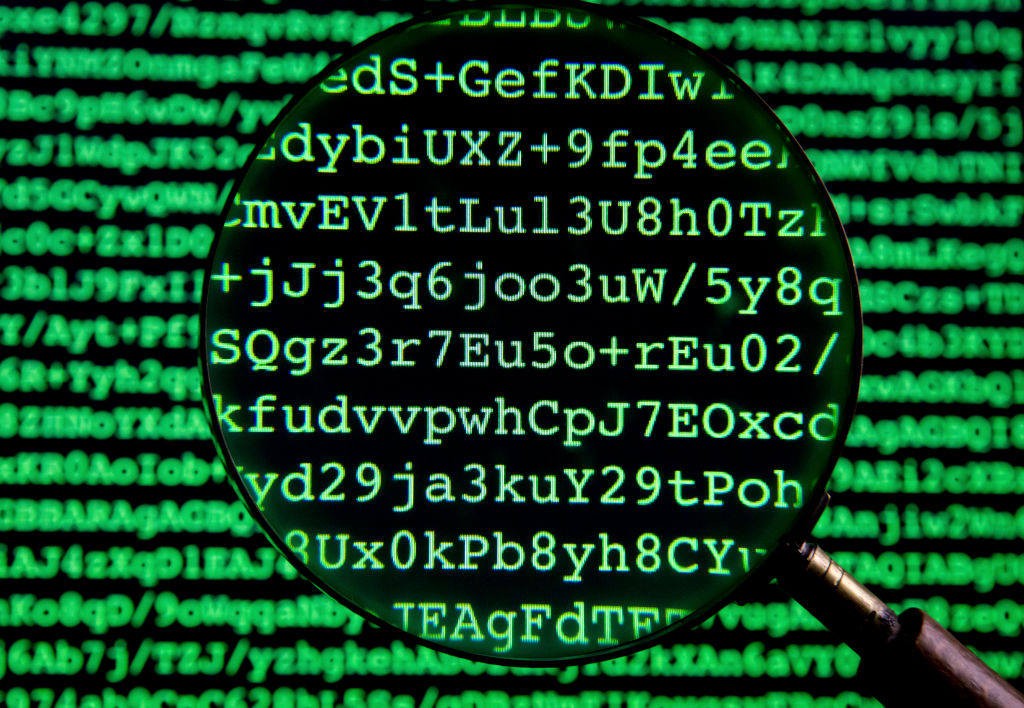
Government efforts to access private communications are nothing new. In decades past, such attempts at prying were often justified on national-security grounds. Today, however, policymakers point to child safety and disinformation as reasons to limit privacy protections. Established democracies are often leading this charge, inadvertently paving the way for the world’s autocrats.
But people around the world aren’t taking these policies lying down. They speak out, using events like Global Encryption Day to highlight the importance of privacy and security not just for their own lives but for their communities and societies. And as vociferous opposition continues to stymie government efforts to expand surveillance powers, it’s become clear that public pressure works.
Encryption, which scrambles digital data so that it can be read only by someone with the means to decode it, has become ubiquitous because it keeps information confidential and secure while authenticating the identity of the person with whom one is communicating. Today, billions of people use encryption to send digital messages and emails, transfer money, load websites and protect their data. The gold standard in security is end-to-end encryption (E2EE), since only the participants have access to the data—not even the service provider can decipher it.
Despite its immense value and global appeal, encryption is under threat worldwide. It is used by law-abiding citizens to protect themselves, but also by bad actors to hide their malicious activities. For this reason, law-enforcement authorities oppose encryption designs, especially E2EE, that prevent them from accessing data.
But even after decades of research, there’s still no known way to grant law enforcement access without undermining encryption’s privacy and security features. The makers of encrypted devices and services have therefore resisted calls to build in ‘backdoor’ government access, which would make all of their users more vulnerable.
The harmful online activities that concern police don’t happen only in encrypted spaces. Hate speech, disinformation and other objectionable content remain a pernicious problem on social-media platforms and other sites, motivating a worldwide legislative push to force tech companies to improve their services. The British Parliament, for example, recently passed the Online Safety Bill after several turbulent years during which civil-society pressure changed its scope significantly. The final version, which is awaiting royal assent, focuses mainly on the removal of illegal content and mitigating risks to children.
Yet the bill still has serious flaws. For example, parliament failed to include language safeguarding encryption. Moreover, the law gives Ofcom, the UK’s communications regulator, the authority to compel social-media platforms and messaging services to mass scan their users’ files and communications for evidence of child sexual abuse.
No one contests that fighting child exploitation is immensely important. But Ofcom’s power covers E2EE messaging services, which, by definition, can’t be accessed by service providers. Thus, the only way these services could comply with an Ofcom order is by making fundamental changes to their encryption design.
In other words, the bill gives Ofcom the power to force service providers to undermine their own encryption. Apple, Meta and Signal have all promised to pull their E2EE apps from the UK rather than comply with any government order to diminish their users’ privacy and security. In response, Ofcom has publicly vowed not to use its new authority, at least for now.
And with good reason: important bodies have concluded that scanning technologies aren’t sufficiently accurate, would limit fundamental rights and would likely fail the proportionality test—the disadvantages would outweigh the advantages. Furthermore, criminals could easily circumvent these controls by encrypting content with a separate application. Ofcom would be wise to tread carefully, lest it risk the privacy and security of internet users for the sake of unproven and potentially ineffective technologies.
Ofcom’s (supposed) forbearance recalls Australian authorities’ conduct since the passage of a contentious 2018 law granting new governmental powers to compel communications providers to add backdoor access to their products. Civil-society and cybersecurity experts raised alarms about the law’s dangers for privacy and security, and legislators themselves admitted the bill was flawed, but it passed anyway.
Five years later, not a single compulsory notice has been issued. This may reflect a deliberate choice: exercising such a power risks political blowback. Wield the sword too enthusiastically, and it might be taken away; better to keep it sheathed in favour of other, less controversial tools. Then again, government forbearance might also indicate that the controversial new power was unnecessary in the first place.
Public scrutiny of government powers keeps them in check. That’s how a democracy is meant to work. In promising not to use its new tool, Ofcom appears to have grasped that the government’s legitimacy is at stake. But as the UK bill inspires similar legislation in other countries, some of which are less democratic and have a track record of weaponising digital technologies against their citizens, this nuance will likely be lost.
The first test will come in the European Union, where legislators are fighting over a draft regulation to expand tech companies’ child-safety obligations. Like the UK bill, the proposed Child Sex Abuse Regulation has already gone through numerous revisions, as member states lock horns over protecting E2EE.
Derisively called ‘chat control’, the draft regulation has been widely decried for potentially forcing European service providers to scan all public and private communications, which would amount to an illegal general monitoring obligation. Recent reporting stoked these concerns by revealing that Europol, the EU’s law-enforcement agency, requested unlimited access to and use of the data produced beyond the purposes identified in the regulation; it appears to have no intention of restraining itself. Continued public pressure is necessary to push for reform of ‘the most criticised draft EU law of all time’.
If government surveillance is a concern in an established democratic entity like the EU, what hope is there for beleaguered democracies like Turkey, India and Brazil, much less autocracies? Fortunately, the public movement in support of encryption is growing, with advocacy groups like the Global Encryption Coalition leading the charge.
By engaging with civil society, technologists and the public, governments can design regulations that respect privacy, data security and freedom of expression while still helping protect users from harm. Doing so is the only way to make sure that the internet works for everyone.
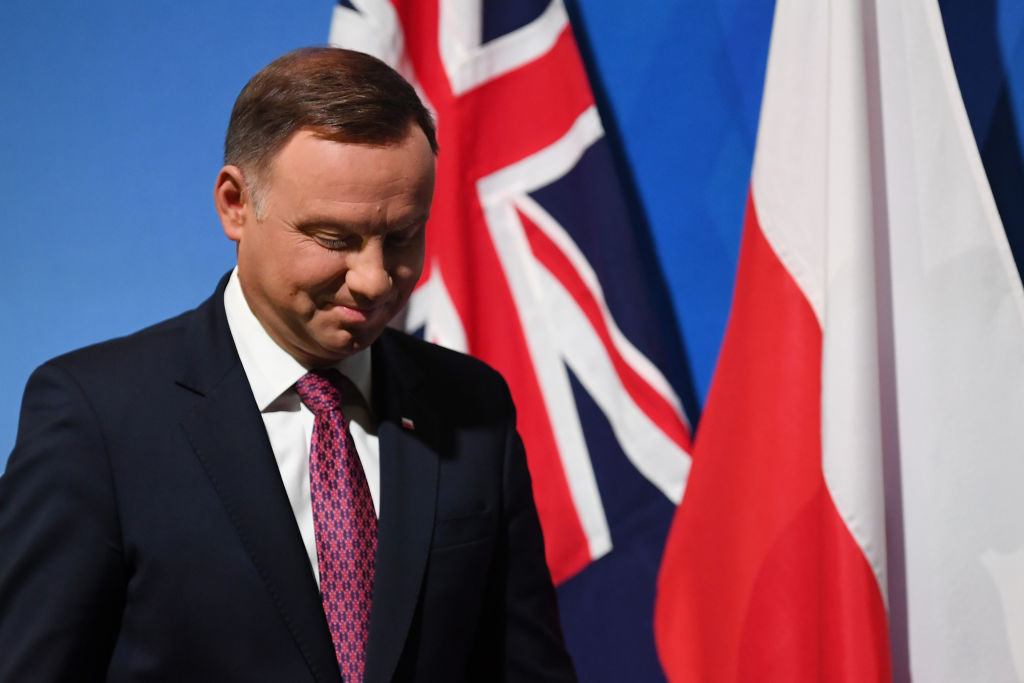
The Russian invasion of Ukraine continues to impact global security, challenging standard principles of defence planning and national strategy. Middle powers, whether they be close to the aggression, like Poland, or far from it, like Australia, have been reminded of the looming threat of increasingly assertive autocracies. As dictators proclaim that ‘the world is undergoing profound changes unseen in a century’, both democracies find themselves needing a plan.
Australia and Poland may seem an unlikely pairing, but there are parallels. Both are well-positioned to enable the US to achieve local objectives, while serving their own security needs. Both can see the benefits of a coalition that magnifies their stature and deters aggression, but must ponder what degree of alignment with Washington serves their interests without diminishing their autonomy, as defence planning is a lengthy undertaking that must provide bureaucracies rigid objectives.
Both face a rude awakening. Russia’s invasion exposed capability gaps and inefficient procurement within NATO and throughout the US alliance system. The war has led to foreboding warnings of autocratic aggression, like Japanese Prime Minister Fumio Kishida’s comments that East Asia could be “another Ukraine” if the region’s democracies fail to prepare. Australia, which has long aligned its foreign policy with the US, cemented that approach through the AUKUS agreement and its new defence strategic review.
Warsaw and Canberra share this history of collaboration with the US. Their loyalty has been proven over the years, in arms procurement and in Afghanistan and Iraq. But such close reliance on US military power has bred complacency. Now, as both countries manage unprecedented change, they find themselves restricted by American strategy. While Poland tries to acquire a leading voice in the NATO alliance by splurging over 4% of its GDP on arms, Australia is further entrenching itself with the US in the Indo-Pacific, confident of American commitment to the region.
Australia’s decisions, including a clear shift from a balanced to a focused force through considerable cuts to armoured capability in favour of long-range precision weapons, are predicated on war scenarios envisioned by Washington. The multibillion-dollar AUKUS deal ensures that Australia will remain the staunchest US ally in its region. Poland similarly relies on American weaponry, largely ignoring European options. That said, by opting for more equipment from South Korea, including K2 tanks, Chunmoo rocket-artillery systems and FA-50 fighters, Warsaw has refrained from putting every last egg in one basket.
The main reason Australia and Poland are so attached to an instrumental role in American strategy is geostrategic. These countries’ role in a coalition war would be similar—their locations would support US forces. While Australia would likely serve as a rear operational base and logistical hub for maritime and air operations, Poland, just like in the 1940s, would offer US forces an invaluable sanctuary and jumping-off point for land-based fighting in Europe.
Rising concern about the resurgence of authoritarian powers has redirected both countries’ preference for efficient, long-term procurement to more expensive solutions based on these roles. Whereas Poland’s plans are set to deliver results in five to 10 years, Australia’s nuclear submarines should arrive in the early 2040s. The costs and time requirements of the first pillar of AUKUS render Australian strategy predictable and fairly inflexible, which is especially worrying as it moves into a ‘decisive decade’.
With the so-called ‘Davidson’s window’—the idea that China may assault Taiwan by the end of the decade—closing, and the trajectory of Chinese military capability potentially peaking soon given looming economic woes, AUKUS mightn’t come together in time to serve its purpose.
Finally, both Australia and Poland now face the tall order of achieving prolonged increases in their defence budgets. Buying equipment is one thing, but maintaining, supplying, crewing and modernising it is another, and leaders could struggle persuade voters to support it. This is why the ambitious plans of the Polish government should be taken with a grain of salt. Inevitably, both Warsaw and Canberra will have to show the public that strong defence builds prosperity and isn’t a burden that hampers social spending. Given their geography, democratic systems, ideological affinity to the US and political resolve, Australia and Poland will likely find a way to play their enabling role in American strategy.

The criticism of Australia’s recent package of assistance to Ukraine was justified. It managed to give a perception of a middling power’s apathy, rather than a regional power’s ambition.
However, Prime Minister Anthony Albanese’s attendance at next week’s NATO summit in Vilnius is another opportunity for Australia to take a more meaningful package to the core group of nations fighting for Ukraine’s sovereignty and against Moscow’s authoritarian aggression.
Such a package would be consistent with the defence strategic review, which rightly recognised that deterrence must be the cornerstone concept of a national defence strategy, including through working with partners.
Vitally, this is not just about a war on the other side of the world that we can choose to ignore. To help deter aggression in the Indo-Pacific, we must help Ukraine prevail in Europe. Partners must provide the necessary military support to Ukraine to take advantage of the current operational advantage—heightened by the turmoil of the Prigozhin mutiny—and push Russia out of its territory to reclaim its sovereignty.
While the bulk will need to come from NATO members, Australia, as a NATO enhanced opportunities partner, has much to offer. In terms of military equipment, Defence should look harder at what is possible for a friend suffering war crimes, and not let the perfect be the enemy of the good. It’s likely we can afford to send some Hawkeis, and the previously dismissed but now live option of jets in the form of retired F/A-18 Hornet fourth-generation fighters.
Failure in Ukraine would only embolden authoritarian aggression elsewhere in the world and could fatally undermine the notion of collective security. This includes the framework of international laws that provide vital protections and establish inviolable rights for states and civilians alike, also known as the international rules-based system.
Ukraine is fighting for its very survival—as a nation, a people and a culture. It cannot and will not stop. It is fighting within and beyond Ukraine, using every available lever: political, technological, military, economic, diplomatic and, importantly, informational.
Russia’s fight is for a fiction, laid bare in unexpected and dramatic fashion by Vladimir Putin’s own creation, Yevgeny Prigozhin, over an extraordinary weekend. It is a fiction based on Putin’s obsession to restore the Soviet Union, scaffolded by a complex information warfare campaign and enforced with heavy-handed violence at home and atrocities in Ukraine.
Despite an unconvincing start, key actors within NATO—the Baltic states, Poland, the UK and the US—unwound entrenched institutional inertia to provide support. Germany has gone from offering helmets to supplying tanks. This collective success seems to have surprised almost as many in the West as it has Putin (and likely his ‘no limits’ partner, China’s President Xi Jinping).
Australia’s and Japan’s support have been important in reinforcing the fact that Russia’s invasion of Ukraine is a global issue, not just an Atlantic problem. The Indo-Pacific has a key interest in ensuring that the rule of law prevails, that Ukraine prevails, and that there is no perception that crises and conflicts can be ‘regional’ and ‘contained’.
We cannot stem the contagion of war and the erosion of collective security unless we deny Russia its aims and hold it responsible for its actions.
Ukraine’s partnerships are among the asymmetric advantages it holds—along with the iron will of its people and its masterful use of strategic communications. But the partnerships are only useful if the partners provide real resources that give Ukraine its much-needed military edge.
The longer the war goes on, the more uncertainty there will be—across changes in governments, economies and popular support. The longer it takes to defeat Russia’s aggression, restore the rule of law, and ensure justice for Russia’s crimes, the greater the risk to our efforts to deter any such aggression in the Indo-Pacific.
The time to end the war in Ukraine is now. Russia is significantly weakened, but there are opportunities on which Ukraine can capitalise only if it has greater technological and military assistance from countries like Australia. This could likely enable the Ukrainians to push the Russian military back to its borders.
If it’s clear that Russia is failing to achieve its aims, Xi’s concern will grow. Xi and his military are excellent students of strategy and warfare. The key lesson that Ukraine and the free world want Xi to take away—in the interests of global peace and security—is that unilateral authoritarian aggression will not succeed and comes at an unacceptable cost: economically, militarily and politically. If that can be achieved, deterrence in the Pacific will be significantly bolstered.
Beyond that signal to other authoritarians, the lessons from Ukraine can help Australia build the stronger and more focused force the government wants. It can enable policymakers to better understand necessary industrial capability, and ultimately help deter aggression in the Pacific.
As Albanese heads for Vilnius, he should offer everything Australia possibly can afford, confident that any concerns about depleting our own capability are outweighed by the cost of failing to provide Ukraine with relevant support today.
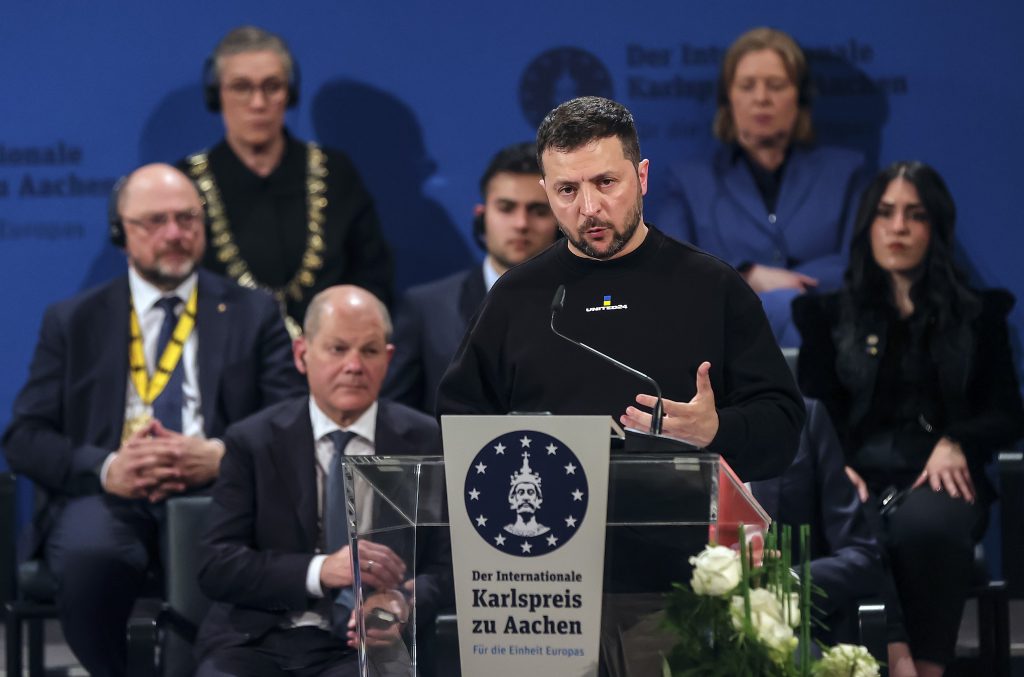
The European Parliament elections are still a year away, but political parties across the EU have already shifted to campaign mode. While the election will undoubtedly feature a wide range of views on climate change, immigration, and religion, there is one issue that seems to unite politicians of all stripes: the war in Ukraine.
More than a year after Russian President Vladimir Putin invaded Ukraine, all mainstream European parties are still singing from the same hymn sheet when it comes to supporting the Ukrainian cause. But the appearance of unity masks a brewing conflict over the soul of Europe: its conception of freedom. While it is widely acknowledged that Ukraine’s fight represents a fight for democracy and European values, it is also increasingly clear that victory would require Europe to abandon some of the key elements of its own freedom project. This is the paradox of freedom in Europe.
Over the past half-century, European countries have developed a concept of freedom that relies on universalism, the repudiation of military force, economic interdependence, pooled sovereignty, and the idea of Europe as a singular entity founded on a set of common institutions. This vision is what distinguishes the EU from other regions and even from its member states. But the war in Ukraine has called into question the bloc’s basic tenets and opened the way for skeptical national leaders to challenge them.
While Europeans previously viewed their project as post-national, they now acknowledge that the EU model is exceptional rather than universal. Over the past year, European policymakers have become increasingly fixated on fortifying the EU’s borders against other political projects to the east and the south.
Consequently, European integration, originally pursued to ensure peace on the continent, has been transformed—if not quite into a ‘war’ project, then at least into an armed pacification-cum-security project. Europe’s institutions, which once relied on soft power, now provide military equipment to Ukraine and endorse the continent’s rearmament, and the European Commission has weaponised the EU economy through sanctions and accelerated the transition to a war economy, complete with rationing and energy-price controls.
But the most dramatic shift in European political thinking has been the reconsideration of interdependence. European integration was based on the belief that deepening economic ties between countries could transform former adversaries into allies. But, as Putin has demonstrated, interdependence can also be exploited as a tool for extortion.
For decades, the main goal of the European project was to tame nationalism by pooling sovereignty. But now, Europeans recognise that sovereignty must be protected before it can be pooled. The EU’s transnational legal system cannot serve as a universal blueprint for the entire continent, let alone the world.
In the early stages of the war, the tension between the EU’s liberal values and its wartime mobilisation was less pronounced. The technocratic European Commission supported the war effort by advocating measures to arm and morally bolster Ukraine in its struggle against Russian aggression. The decision to grant Ukraine candidate status represented an exceptional step for the bloc—a marriage between geopolitical imperatives and the tools of process-oriented bureaucracy.
Meanwhile, both the left and the right have had to adjust their positions to find common ground on Ukraine. European liberals have become less resistant to nationalism and more attuned to the necessity of using force against Russia, and the right has been forced to reassess its stance on the EU’s role as a strategic actor.
The 2008 global financial crisis and the 2015 refugee crisis catapulted the far right to the forefront of the political debate. But the failure of Brexit, together with the COVID-19 pandemic, led to a decline in Euroskepticism, with mainstream parties benefiting from the public’s desire for stability. Polling by the European Council on Foreign Relations (ECFR) has shown that during these crises, many right-leaning voters recognised that sovereignty could be reclaimed only through collective action, and many formerly Euroskeptic parties abandoned their pledges to leave the EU or abandon the Euro.
Voters across the bloc have undergone a similar shift. ECFR’s latest opinion poll shows a blurring of the traditional left-right divide on geopolitical matters and a growing fusion of nationalism and cosmopolitanism under the European idea of freedom. This change, spurred by the war in Ukraine, goes to the heart of what the European project is really about, and in the long run will lead to a struggle over Europe’s identity. In that regard, the upcoming European elections could serve as a bellwether.
Although European parties are currently trying to outdo each other in showing support for Ukraine, thorny issues such as the conduct of the war, the treatment of refugees, and how a post-war Ukraine would be integrated into the EU could once again divide Europe. If fatigue from the war, the refugee crisis, and the high cost of living sets in, the 2024 European elections could become a new battleground.
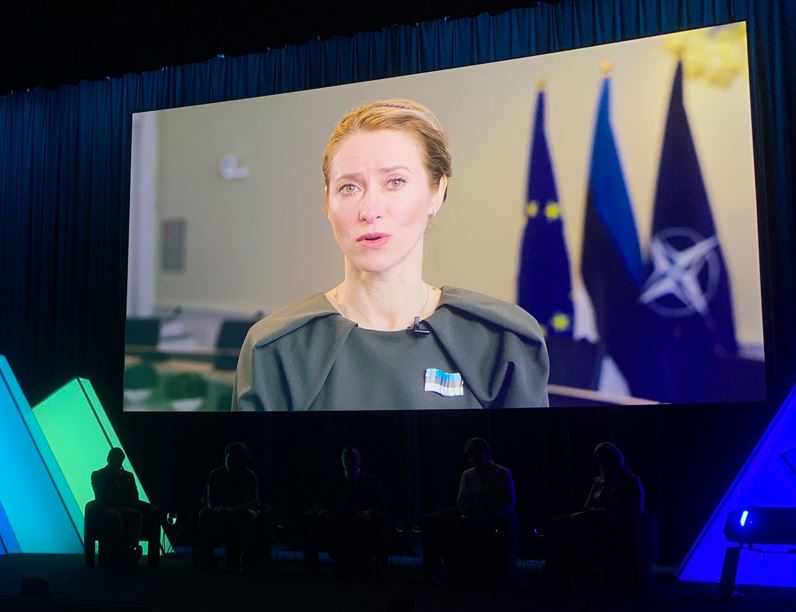
Estonia’s prime minister, Kaja Kallas, spoke at ASPI’s Sydney Dialogue about how Russia’s invasion of Ukraine has highlighted the importance of securing democracies against malicious cyber actors. An edited transcript of her speech follows.
Two years ago, I had the opportunity to chair the first-ever official UN Security Council meeting on cybersecurity. Almost everyone there stressed that all states have already agreed that international law, including the UN charter in its entirety, applies in cyberspace. Only two countries did not. Half a year later, one of those countries, Russia, started its full-scale aggression against Ukraine and violated every rule in the book. For years, we heard predictions that the next big war would be a kind of cyber Armageddon. But instead, Russia brought back large-scale conventional war.
A year ago, the world woke up to the images from Bucha, a suburb of Kyiv, where Russian occupiers had brutally tortured and killed civilians before it was liberated by the Ukrainian forces. The extent of Russia’s war crimes, crimes against humanity, and possibly genocide, today repeat the Kremlin’s atrocities from the past. The fact that [Russian President Vladimir] Putin is wanted by the International Criminal Court speaks for itself and shows that no one is immune from responsibility, not even heads of state. During Russia’s war of aggression against Ukraine, much of our focus has been on conventional war, our vocabularies: Javelins, Stingers, Leopards and HIMARS. Rightly so.
The aggressor must be defeated on the battlefield. Ukraine must win, and for this it needs all the military support it can get, and fast. But as I often stress, in addition to conventional war, Russia is also waging a hybrid war. This includes energy war, information war, cyberwar. We must draw lessons from this both for our own support to Ukraine and to take the leap forward in our own defence. Russian aggression is also a reminder that we actively need to enforce a world where rules still apply and where technology works for, not against, democratic societies and human rights.
First, cyber integrated into regular warfare is now established practice. An hour before Russian tanks rolled over Ukraine’s border, Russia took down Viasat satellites. It left the Ukrainian military without the vital communication line for the first few days. There was also a big spillover effect. For example, across Europe it took offline hundreds of thousands of Viasat TV subscribers. In Germany, it took offline more than 11 giga[watts] of wind turbine generation capacity. This is just one example of direct collateral damage from Russian aggression in the rest of Europe. Russia has also targeted digital infrastructure, data centres, wireless masks, in the same way they have targeted energy infrastructure.
And second, having a trustworthy digital society is a strength, not a weakness. Ukraine’s digital backbone has been invaluable to keep the state running and deliver services online even during the war. Many Russian cyberattacks have not been successful. Not because of luck, but because Ukraine has spent years building up cyber resilience with help from Estonia and others. And now they have lessons to teach us. Some government data systems were physically relocated, simulating Estonia’s pioneering ‘data embassy’ concept.
The Ukrainian state app called Diia was offering citizens a one-stop shop for public services already before the full-scale war. Now it allows Ukraine to keep providing services for millions of refugees spread across Europe or trapped under Russian occupation. It has even replaced physical identity documents. Estonia is already working with Ukrainian partners to adopt the app also for our citizens. Ukraine has also shown us how the skilful use of technology helps to keep society going even during a war: taxes paid, public services available, data kept safe and secure.
Third, there’s currently a real sense of impunity in cyberspace. The blurred lines of responsibility and difficult attribution make cyberattacks more attractive as a tool. Russia continues to use the so-called DDoS diplomacy to send political signals and try to create disruptions beyond Ukraine. We are seeing more activities by state-sponsored malicious cyber groups across the world. Nearly every week Estonia experiences major cyberattacks against government and private services. Some of those have been more severe than the 2007 cyberattacks against Estonia. The effects have been minimal, but only because we are well prepared.
And finally, the private sector has transformed its role during this war. Companies like Palo Alto, Amazon Web Services and others have provided much-needed services and security measures for Ukrainians to defend their e-governance. The analysis provided by companies like Microsoft and Mandiant has been crucial. We need to take public–private partnership to a whole new level. But we also need to manage our mutual expectations. For example, when it comes to the spread of disinformation, social media platforms are still not doing enough. To paraphrase Churchill, due to social media a lie gets half around the universe before the truth has a chance to get its pants on. This is a particular concern in smaller markets like Estonia.
The question now is, where do we go from here? First, we must all be prepared that the cyberwar will continue even after the conventional war ends. The security environment has changed, and we must all adapt rapidly. A strategy of deterrence against cyberattacks or disinformation has not been sufficient. Our focus must be increasingly on resilience, giving our institutions and people the skills to cope in a high-risk environment. As a highly digitalised society, we need to make sure that public services remain available and data is kept safe also during aggression and crisis. Last year Estonia nearly doubled its annual cybersecurity budget. This had instant results. All countries and companies must significantly increase their investment in cybersecurity.
When a few years ago hospitals only had to worry about some drug addict coming and stealing their morphine, now their security risks are cyber. If they are cyberattacked, they could be taken down and there could be civilian casualties. We all talk about cooperation, but this is not enough. The cyber threat picture can change fast, so there is a need for swift information exchange. We need a high level of trust between like-minded countries, service providers and intel agencies to share the kind of information that can prevent attacks elsewhere in the future. For example, in the European Union, the Estonian National Cyber Security Centre is by far the most active in sharing cyber threat information with cyber authorities in other member states. The bad guys share information with each other. So must friends.
Second, we must step up our efforts in cyber capacity building. Closing the digital divide must go hand in hand with building up cyber resilience. Estonia has long shared its knowhow. A recent example is helping to set up a new Cyber Competence Centre for Latin America and the Caribbean in the Dominican Republic. We have also been helping countries in Africa, Central Asia and Eastern Europe build more robust cyber defences over many years.
Third, we must do more to send a clear signal that there’s no place for impunity, not in cyberspace, not anywhere else. Becoming better and faster at attribution is one important thing, but we need to look also at the big picture. Russia’s strategic goals are much bigger than Ukraine. It wants to rewrite the world in its own image where might makes right. In the struggle between democracy and autocracy, the digital sphere is not the sideshow but the frontline.
A few weeks ago, Russia tabled a new cyber warfare treaty at the UN. It aims to undermine the obligations for states under existing international law and justify censorship domestically. But existing international law applies in cyberspace in full. One of the risks I see is sleepwalking into negotiating new legally binding international rules with an outright war criminal. We can’t negotiate new international norms where an aggressor feels like the existing ones are not suitable for its goals. Let’s review and be aware of our engagement with Russia in international organisations.
And finally, it is clear that security can no longer happen in silos. Any serious approach to defend liberal democracies will have to go beyond current institutional limitations. We must build connections and set standards with those we can trust, especially as new technologies like artificial intelligence, 5G and quantum computing become realities. The Indo-Pacific region is at the forefront of this conversation. Those in the region who share the same values should be natural partners for European countries.
We must keep widening the circle of like-minded countries. For too long we have been over-reliant on countries who do not share our values and who weaponise our trust. The era of such dependencies has come to a close. We must be able to shape the age of rapid technological development so that it will serve our societies, including fostering ethical AI and building more trustworthy digital ecosystems. Liberal governments cannot do this alone. It needs to be in partnership with businesses and civil society.
And it also involves big tech putting its money where its mouth is to protect democracy—transparency, better algorithms, adequate content moderation also in smaller markets. We are in it for the long haul. Tyrannies like Russia do not want freedom and democracy to prevail. It is a direct threat to dictatorship. That is why they will keep trying to turn technology into a tool of oppression and a means to destabilise free societies. Our job is to help Ukraine win the war, rethink our connections and ensure impunity does not prevail in any sphere, cyberspace included.
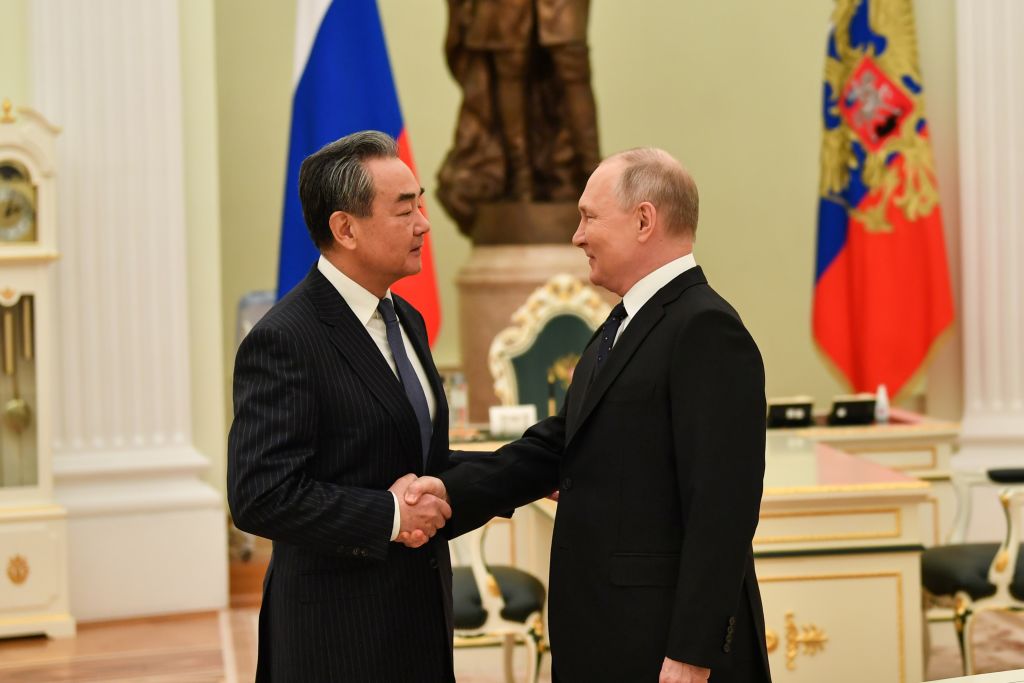
On 24 February, marking one year since Russia’s all-out invasion of Ukraine began, China’s Ministry of Foreign Affairs published China’s position on the political settlement of the Ukraine crisis. In theory, its 12 points form the basis for peace negotiations that Beijing—perhaps President Xi Jinping himself—could broker. With this plan, Beijing is positioning itself as a peacemaker and neutral party to the conflict. Nothing could be further from the truth.
The peace plan is a cynical attempt to help Russian President Vladimir Putin, hamper support for Ukraine, bolster Beijing’s image in the global south, and distract from the reality of growing Chinese support to Moscow. That includes economic support as Russia’s largest trading partner and concerns that Beijing may start providing arms to the Russian side. The organising principle throughout the plan is self-interest, notably leveraging war in Europe to support Beijing’s aims for reshaping the Indo-Pacific.
First, we must recognise that this plan is biased. Just as Putin visited Beijing to consult with Xi days before launching his offensive last year, Chinese Foreign Minister Wang Yi was in Moscow days before this plan was released. Despite Russian denials, it’s probable that the plan was discussed, especially as its existence had already been trailed by Wang at the Munich Security Conference. By contrast, we know that Beijing didn’t consult Kyiv about this 12-point plan or its earlier manifestation as four principles.
The most glaring omission in Beijing’s plan is the failure to mention Russian aggression. When quizzed on this point, China’s foreign ministry spokesperson said, ‘Our position is clear. We stand on the side of peace and dialogue, and on the right side of history.’ Clear as mud, and consistent with Beijing’s ongoing strategy of obfuscation.
In fact, as ASPI research shows, Beijing has long amplified Russian disinformation blaming the West for the war. This is alluded to in the 12 points, which caution against a ‘Cold War mentality’ and ‘expanding military blocs’. The spokesperson was less veiled in pointing the finger: ‘Stoking bloc confrontation leads to conflict and war … We have seen what NATO has done to Europe and it must not seek to sow chaos here in the Asia–Pacific or elsewhere in the world.’
At first blush, there are attractive elements among the 12 points, such as respect for sovereignty, territorial integrity and international law (point 1). But if we keep in mind Beijing’s concealment of Russian responsibility for the war, then the whole shabby edifice crumbles point by point. If Beijing cared about the UN charter, why doesn’t it call out Russia’s blatant violation of it? Instead, China abstained on the UN General Assembly resolution calling for Russian forces to leave Ukraine.
Such duplicity lurks behind the espousal of laudable principles throughout the plan. If Beijing wants to alleviate suffering (point 5), why is it failing to provide bilateral humanitarian aid to Ukraine? If Beijing cares about humanitarian law (point 6), why did it vote against the Human Rights Council resolution that set up a commission of inquiry into war crimes in Ukraine? If Beijing supports nuclear safety (point 7), why is it undermining trust in the International Atomic Energy Agency by challenging its objectivity in the context of the AUKUS agreement? And if Beijing is committed to reducing strategic risks around nuclear weapons (point 8), why has it failed to condemn Russia’s suspension of the New START Treaty?
The truth is that Beijing only observes the principles underpinning international order to the extent that they serve its interests. Kyiv and the community of countries helping Ukraine defend itself already uphold these principles, while Moscow patently doesn’t. Beijing’s plan overlooks this inconvenient truth and instead implies moral equivalence between the warring parties, seeking to bolster the myth that it could act as an honest, even-handed broker in peace negotiations.
Throughout the plan, Beijing has sought to manipulate the war in Ukraine to maximum strategic advantage. The clearest example is point 10, which calls for a stop to sanctions not endorsed by the UN Security Council. Russia’s veto on the council aside, Beijing’s moral high ground over the lawfulness of unilateral sanctions is paper thin. It has equivalent regimes and, as ASPI research has shown, makes widespread use of non-transparent economic and other levers for ‘coercive diplomacy’—a term that Beijing has adopted to criticise the US. Beijing’s sustained invective against sanctions is motivated largely by concern that the West could use similar measures against China, including to deter or punish attempts to forcibly change the status quo across the Taiwan Strait.
Beijing’s proposals for a ceasefire and peace talks (points 3 and 4) are also self-serving. Were the plan realised based on the current reality on the ground, Russian territorial gains would be crystallised. This provides no basis for a just and durable peace. The result would be a frozen conflict, which Russia could restart at a time of its choosing, as we’ve seen with its salami-slicing tactics since 2014. A simmering conflict suits China because a durable peace in Europe could allow the US and some NATO partners to focus more on maintaining stability in the Indo-Pacific, potentially stymieing Beijing’s ambitions for Taiwan.
As Russia seemingly flounders, Beijing will fear that Ukraine might achieve its war aims, which are clearly stated by President Volodymyr Zelensky in his 10-point ‘formula for peace’ and include the full withdrawal of Russian forces from Ukraine. Such an outcome would invigorate Western confidence and solidarity. The paranoid Chinese Communist Party may even fear that its grip on power could be threatened by precedence if Putin’s failure in Ukraine precipitated a power transition that shifted Russia back towards the West and democracy.
Despite its flawed plan, Beijing cannot be sidelined—attempting to do so would be counterproductive and might exacerbate the risk of China arming Russia. Zelensky has every right to seek a meeting with Xi, who has the means if not the intent to tell Putin some home truths about his failed gambit in Ukraine. It is telling that Xi has dodged a meeting or phone call so far. Western ministers will also continue to engage their Chinese counterparts, lobbying for Beijing to play a more responsible role.
Xi has the means to help bring about peace in Ukraine. He could back Zelensky’s 10-point plan. He could call out Russian aggression and use China’s economic and political leverage to force Putin to call back his troops. Beijing’s 12-point position is a cynical diversion from the task at hand.